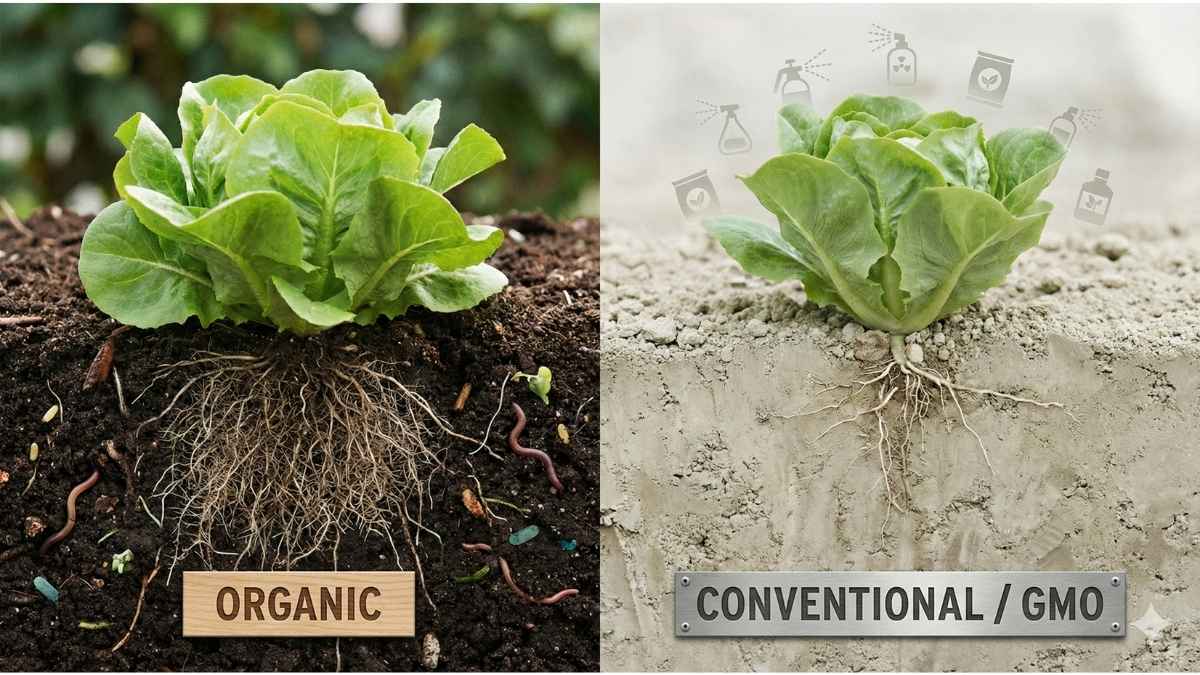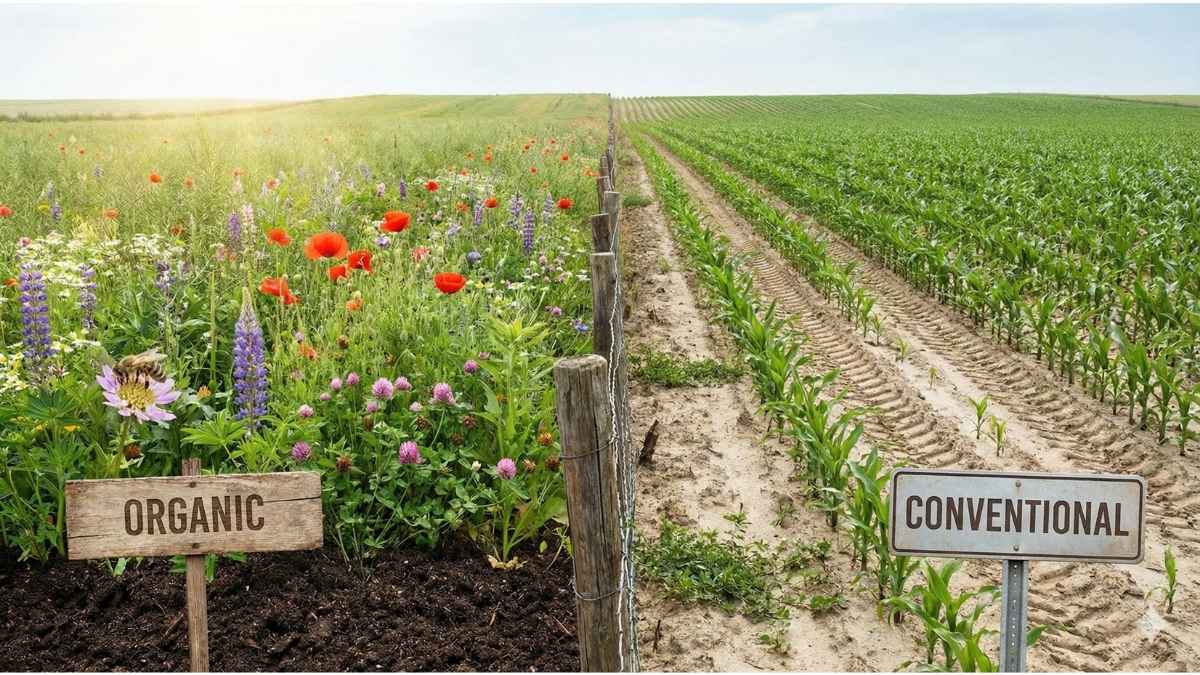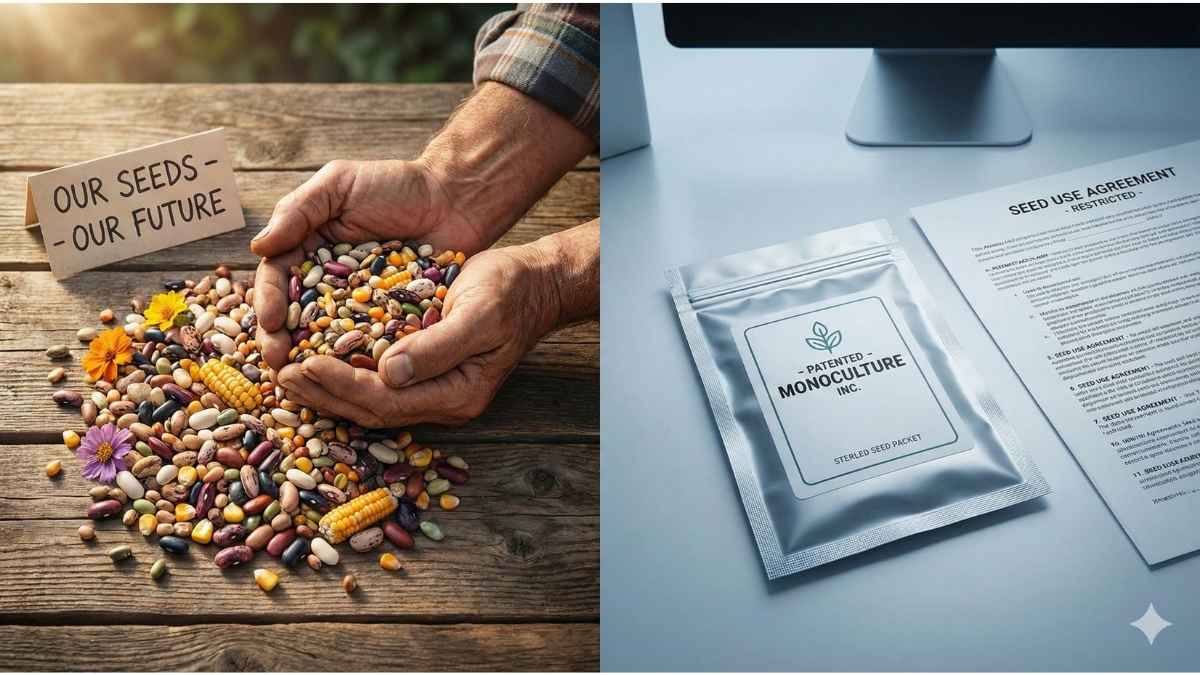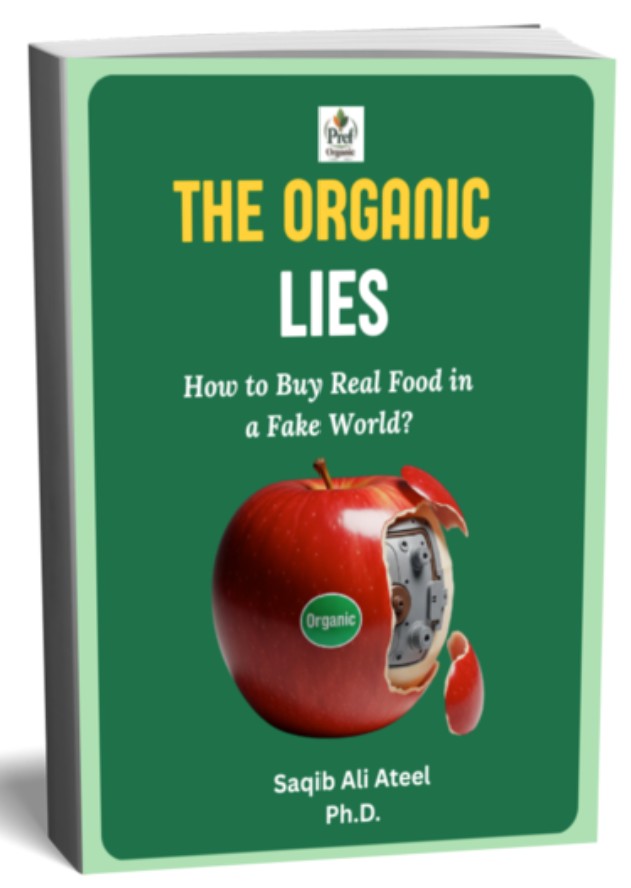GMO vs Organic Food – A Deep Dive into the Science of Health, Earth, and Ethics
The moment you stand in the grocery aisle, looking at two nearly identical heads of lettuce—one labeled GMO vs Organic Food—the confusion hits. We’ve all been there.
As a PhD Student in agriculture, combined with a lifetime of hands-on farming, I understand the frustration. You're not just buying food; you're trying to protect your family, and you deserve a clear, honest answer based on science, not marketing hype. The central question of the debate—is organic food is it healthier—is complex, but we can break it down.
My goal is to share what I’ve learned, with the understanding that we're always discovering more. This article is your ultimate hub for the macro-level debate. We are going beyond the labels to explore the systemic impact of these two philosophies on your body, the environment, and our global community.
Actionable Takeaways for Health, Earth, and Ethics
- 🌿 Health Risk Reduction: Discover why avoiding pesticide exposure (especially for children) is the most compelling scientific reason to choose certified organic products.
- 🌱 Ecological Resilience: See how organic methods are unequivocally superior for building soil health, promoting water retention, and supporting vital pollinators.
- 💰 Seed Autonomy: Uncover the real ethical cost behind the organic price tag—it’s an investment in open-source seed diversity and farmer control.
- 🚀 GMO Safety Consensus: Understand that all approved GMO foods are scientifically safe for consumption and offer crucial benefits in land-use efficiency.
- ✅ Your Hybrid Approach: Get the PhD researcher's final, pragmatic verdict on how to prioritize organic for maximum risk reduction and budget efficiency.
Pillar 1: Health, Nutrition, and Safety – Organic Food: Is it Healthier?
This is the question that keeps every primary shopper up at night: is organic food is it healthier? From an academic perspective, the answer requires separating two things: nutrients and exposure.
Nutrient Density: Fact vs. Fiction
When researchers look for consistent, significant differences in core nutrients—like Vitamin C, iron, or calcium—between organic and conventionally grown food (including most GMO varieties), the consensus is often: not really.
- The Consensus: For most nutrients, studies do not show a consistent, large difference. Soil quality, variety of crop, and when it was harvested often matter more than the growing method itself.
- The Nuance: Some studies have shown moderately higher levels of certain antioxidants and polyphenols in organic produce. Why? My hands-on experience shows that when a plant has to fight a little harder against pests (which organic methods require), it ramps up its natural defense compounds—which happen to be great for human health!
The Real Pesticide Story: Answering "Does Organic Food Use Pesticides?"
The question 'does organic food use pesticides' is common, and the transparent answer is yes, some do—but the key difference lies in the type and frequency of application.
- GMO/Conventional: These methods often rely on synthetic herbicides (like glyphosate) that the GM crop is specifically engineered to tolerate, or potent synthetic insecticides. This can lead to higher chemical residue on the final product.
- Organic: The USDA only permits the use of natural substances and a very limited list of approved synthetics. These are generally less persistent and less toxic than their conventional counterparts.
- The Exposure Factor: My research as a PhD Scholar suggests that the most compelling health argument for organic is the reduced exposure to pesticide residue. Several studies have linked high dietary pesticide intake (common with conventional produce) to higher risks of certain cancers (like non-Hodgkin lymphoma) and developmental issues, particularly in pregnant women and children. This reduction in risk is a powerful, science-backed reason to choose organic.
 Pillar 1 Focus: Health is about Exposure, not just Nutrients. This visual comparison highlights how organic practices build superior soil (left), fundamentally reducing the risk of dietary pesticide residue compared to conventional systems (right).
Pillar 1 Focus: Health is about Exposure, not just Nutrients. This visual comparison highlights how organic practices build superior soil (left), fundamentally reducing the risk of dietary pesticide residue compared to conventional systems (right).Pillar 2: The Environmental Scorecard – Which System Saves the Planet?
The environmental debate pits process-focused sustainability (Organic) against yield-focused efficiency (GMO). It's not a simple black-and-white picture.
Soil Health: Banking on the Future
Growing up on a farm taught me that soil is not dirt; it’s a living bank account. Organic methods are unequivocally superior at building this account.
- Organic: Emphasizes crop rotation, cover crops, and natural fertilization (manure, compost). This boosts soil organic matter, improves water retention, and creates a thriving microbiome in the soil—making it more resilient to drought and erosion.
- GMO/Conventional: While some modern conventional farming uses no-till practices (often enabled by herbicide-resistant GMO crops) which helps prevent erosion, the heavy reliance on synthetic fertilizers can deplete the soil’s natural structure and require high energy inputs (fossil fuels) for manufacturing.
 The Environmental Scorecard. Organic methods (left) are superior for long-term soil resilience and biodiversity; conventional/GMO methods (right) achieve higher short-term yields and land-use efficiency.
The Environmental Scorecard. Organic methods (left) are superior for long-term soil resilience and biodiversity; conventional/GMO methods (right) achieve higher short-term yields and land-use efficiency.Biodiversity and Pollinators
The fate of our environment often hinges on the smallest creatures.
- The Organic Advantage: By prohibiting most synthetic pesticides, organic farms create havens for beneficial insects, birds, and, crucially, pollinators like bees. This increase in biodiversity makes the entire ecosystem more robust.
- The GMO Trade-Off: BT crops (GMOs that produce a natural pesticide to kill pests) dramatically reduce the need for insecticide sprays, which is a huge win. However, herbicide-resistant GMOs allow farmers to spray more herbicides (like glyphosate) to kill weeds. This massive weed kill can deplete the food sources and habitats for other wildlife, particularly in adjacent natural areas.
Pillar 3: Ethics and Economics – Cost, Control, and Choice
The debate moves out of the lab and the field and into the realms of policy and patent law. This pillar is about who benefits and who pays.
The Price Tag: Why Organic Costs More
As a trusted friend, I know the sticker shock of organic produce is real. The reason organic costs more is fundamentally an ethical cost of production question.
- The Labor Premium: Organic farming replaces cheap chemical inputs with more expensive manual labor for weed control, crop rotation planning, and careful pest management.
- The Scale Disadvantage: Conventional/GMO systems benefit from economies of scale and highly efficient, single-crop production (monoculture). Organic is generally harder to scale and often has lower yields, requiring a higher consumer price to ensure the farmer remains profitable.
Seed Patents and Corporate Control
This is perhaps the most critical ethical distinction.
- GMO: The seeds are patented intellectual property, typically owned by a few large corporations. This means farmers must buy new seeds every year and adhere to licensing agreements, giving large companies immense control over the global food supply chain.
- Organic: Organic farmers rely on open-source, non-patented, or naturally cross-pollinated seeds, which supports farmer autonomy and seed diversity, reflecting a decentralized, community-based agricultural philosophy.
 Ethics and Control. The true cost of organic food supports farmer autonomy and seed diversity (left), offering a decentralized alternative to the corporate ownership and patent control prevalent in the GMO vs Organic Food seed market (right).
Ethics and Control. The true cost of organic food supports farmer autonomy and seed diversity (left), offering a decentralized alternative to the corporate ownership and patent control prevalent in the GMO vs Organic Food seed market (right).Your Confident Purchase: Bridging the Label Gap
After diving into the science, you might still wonder: What about those confusing labels?
Remember: The GMO vs Organic Food debate has two parts: the big-picture science (what you just read) and the nitty-gritty of certification.
You Are Now Ready For The Next Step!
If you're still skeptical about purity, or confused why some foods have both the USDA Organic and the Non-GMO Project Verified labels, you need the technical answer.
➡️ Get the ultimate clarity on food safety and standards: [Read about USDA Organic vs Non-GMO Project Verified now to stop the confusion.]
➡️ Need the definitive answer on accidental contamination? [Learn whether organic food can be GMO and the truth about purity standards.]
The Final, Pragmatic Verdict
When you look at the science—as a trusted friend, farmer, and researcher—the final choice between GMO vs Organic Food is not a scientific one, but a pragmatic, personal, and ethical one.
- The Truth of Safety: All scientific bodies agree that currently approved GMO foods are safe for consumption. You don't need to fear the food itself.
- The Truth of Exposure: If your primary concern is long-term risk reduction from pesticide exposure (especially for children or during pregnancy), the organic food is it healthier argument strongly favors certified organic products.
- The Truth of the Planet: If your concern is soil health and biodiversity, supporting organic farming is the superior choice. If your concern is feeding the world with limited land, the efficiency of GMOs offers a powerful tool.
My recommendation is to embrace the Hybrid Approach: prioritize certified organic for the "Dirty Dozen" (the produce with the highest pesticide residue) and support the ethical farming principles you value. For everything else, focus on buying fresh, whole foods.
Be informed, not intimidated. By knowing the science and the trade-offs, you replace confusion with confidence, making you the most proactive protector your family could ask for. 💪

Meet Saqib
Saqib Ali Ateel is a PhD Scholar by training and a "student of the soil" by nature. He combines deep research, hands-on farming wisdom, and agricultural systems supervision to reveal what’s really on your plate. His mission is simple: to help your family navigate the food industry's complexity so you can eat cleaner, safer, and smarter.
Organic Chicken vs. Conventional Chicken
Organic Tomato vs. Conventional Tomato
Organic Strawberries vs. Conventional
